Ethics and Religious Culture (ERC)
In accordance with the standards established by the Ministère de l’éducation du Québec (MEQ), the Ethics and Religious Culture program offers students from all backgrounds the tools necessary to better comprehend our society and its cultural and religious heritage. Students are encouraged to open themselves to the world around them and to hone their interactions with others. All students are given the opportunity to respectfully voice their opinions and ideas in an open dialogue with their peers. Through class discussion and research projects we endeavor to promote an atmosphere of tolerance, respect and openness. This course strives to prepare students for the future, gain knowledge of the world and help them to live in a pluralist and democratic society.
Throughout the year, students master the following competencies:
- Reflect on ethical questions
- Demonstrate an understanding of the phenomenon of religion
- Engage in dialogue
Students are evaluated via oral presentations, quizzes, writing (response, editorial, articles) debates and research projects.
Themes include:
- Diverse Menu: a study of food traditions
- Rites of Passage
- Racism and Anti-Semitism in Canada (past and present)
- Right to Privacy
- Reasonable Accommodation
- Human Rights in Canada and the World
- Poverty and Hunger
- Stereotypes
- Tolerance
- “It is Legal?”
- Justice
- The Holocaust
- Canadian Culture and Native Heritage
- Religious Pilgrimages
Grade 10 classes participate in the Youth Philanthropy Initiative (YPI); an international program designed to grant funds to local charities through student-driven decision-making and advocacy. Students are taught about philanthropy and charity through an experience that highlights the positive impact they can have on their own community.
Students work in teams to research the needs of their community, and identify a local charity they believe is in the best position to effect a positive change. They learn how to assess the charity’s impact and use of resources and prepare a presentation about their charity and its needs. The best presentations from each class compete in a final all-school assembly where a team of judges (comprised mainly of students) selects the best presentation. The Toskan Casale Foundation awards the winning group with a cheque of $5000 for their chosen charity.

